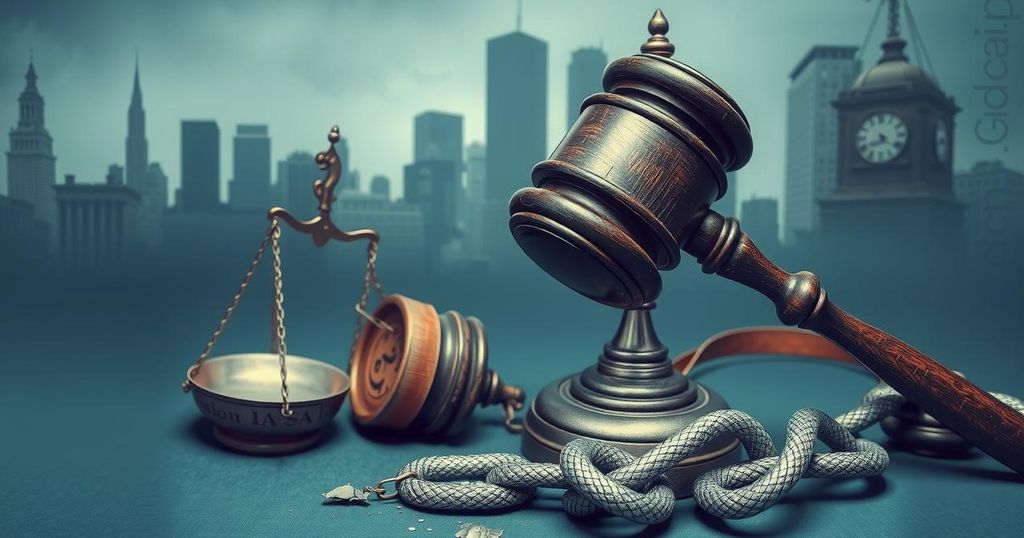The Kilmar Abrego Garcia Case: A Crossroad in the Immigration Debate

The Kilmar Abrego Garcia case has ignited the immigration debate, with Democrats advocating for civil liberties amidst the Trump administration’s strict policies. The situation emphasizes the conflict between due process rights and government overreach as prominent figures engage publicly, exposing a divided public sentiment on immigration issues. Legal rulings suggest potential constitutional dilemmas arising from the government’s actions, highlighting the importance of the delicate balance between enforcement and individual rights.
The Kilmar Abrego Garcia case has significant implications for the immigration debate in the United States, spotlighting core American values such as due process and civil liberties. Recently deported from Maryland to El Salvador, Garcia’s situation has been leveraged by Democrats to counter the Trump administration’s emphasis on immigration threats. Democrats assert that the case highlights the risks of government overreach and the importance of individual rights within the current immigration policies spearheaded by President Trump.
Democratic lawmakers are rallying around Garcia’s case, utilizing it as a pivotal example in the larger discourse on immigration. By sending representatives, including Maryland Senator Chris Van Hollen, to El Salvador, they aim to amplify their message of defending due process rights. Concurrently, high-profile politicians like Hillary Clinton and California Governor Gavin Newsom have publicly criticized the government’s actions, framing them as emblematic of excessive governmental authority.
However, the Trump administration continues to reinforce its narrative that Garcia poses a threat, labeling him a “terrorist” linked to violent gangs, accusations that have not been substantiated by criminal charges in the United States. In response to these claims, Attorney General Pam Bondi stated emphatically that Garcia “is not coming back to our country.” This controversy exposes a stark dichotomy between the positions held by Democrats and Republicans regarding immigration enforcement policies.
Polling trends reveal a divided public opinion on immigration, particularly surrounding deportation policies. While many Americans supported deportations of individuals with violent criminal records, opinions diverge when addressing removal of unauthorized immigrants without a criminal history. These discussions reflect broader societal tensions regarding the balance between immigration control and upholding civil liberties.
Furthermore, the legal issues surrounding Garcia’s deportation represent a conflict between the executive branch and judicial rulings. A ruling from the 4th U.S. Circuit Court of Appeals suggests potential constitutional infringements within the Trump administration’s approach to immigration. This conflict hints at the risk of escalating tensions that could challenge the core principles of democracy and raise questions about the separation of powers within the U.S. government.
In summary, the Kilmar Abrego Garcia case exemplifies critical tensions in the immigration debate, emphasizing the balance between enforcement and civil liberties. Democrats are rallying around Garcia to advocate for due process against a backdrop of intensified immigration policies under the Trump administration. As public sentiment continues to evolve on immigration issues, the case underscores potential conflicts regarding constitutional rights and governmental authority. Moving forward, it is essential to consider these implications as the discourse surrounding immigration enforcement evolves.
Original Source: apnews.com








